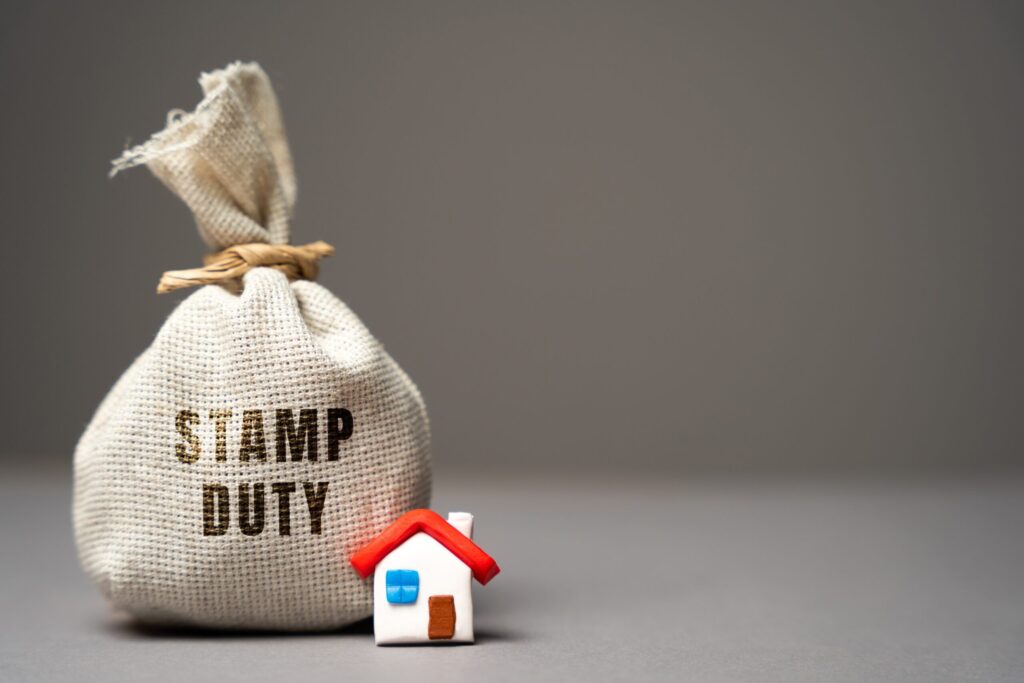Chancellor Rachel Reeves announced the surprise tax increase in the Autumn Budget, claiming it would help first-time buyers and main homebuyers.
These buyers often compete with landlords for properties.
But many landlords are likely to abandon their upcoming purchases when faced with paying the additional tax from tomorrow.
The extra £7,000 in tax is based on Rightmove’s data, which shows that the average asking price on a property for sale in Britain is £371,958.
Property experts insisted that the move wouldn’t just hurt second homeowners and landlords.

Wellness and wellbeing holidays: Travel insurance is essential for your peace of mind
Out of the pandemic lockdowns, there’s a greater emphasis on wellbeing and wellness, with
Sponsored by Post Office
They said the decision is at the expense of tenants as landlords abandon their upcoming purchases due to the additional expense.
This is expected to result in the supply of available properties to rent diminishing and rents increasing further.
Rents are already at record levels, and out of reach for many tenants.
Peter Stimson, head of product at MPowered Mortgages, said: “Buy-to-let landlords and second homeowners were expecting another tax squeeze from the Chancellor.
“But what they got was a whack with a hammer.
“Not an increase in general taxation or the capital gains tax they pay when selling a rental property, but a whopping 2% uplift in the stamp duty payable when buying a home to rent out.”
The Chancellor has announced an increase in capital gains tax, but that will not come into force until next year.
Stimson added: “A sector rendered fragile by successive tax raises and interest rate rises is now likely to be clinging on by its fingernails after today’s announcement.”
He pointed to figures from UK Finance that suggest fewer than one in 10 mortgage applications made this year were for a buy-to-let (BTL) loan.
Stimson went on to say that the number of landlords investing in the property market is likely to drop.
He explained: “That share is now likely to plunge further as would-be landlords run the numbers and decide they just don’t stack up.
“The changes come into force from tomorrow, so there’s a real danger that thousands of purchases that were already in the pipeline will now be abandoned.
“But while hammering buy-to-let landlords is almost a national pastime for Chancellors of all political stripes, the severity of Rachel Reeves’ decision took many people by surprise.
“The irony is that it’s not just landlords who will feel the pain. A third of Britons don’t own their own home, and for many of them, renting privately is the only option.”
Stamp duty rise will ‘exacerbate’ the housing crisis
Stimson added: “With rents already rising and the supply of rental properties about to be further disrupted, rents could now climb even higher.
“Far from solving the housing crisis, this, at least in the short term, could well exacerbate it.”
Tim Bannister, Rightmove’s property expert, said: “We need more homes in the rented sector, not fewer, but in recent times we have seen record levels of stock leaving the rental market.”
Steve Griffiths, chief commercial officer at The Mortgage Lender (TML), said: “With strong demand for rental properties, the need for a healthy private rental sector, and the professional landlords that facilitate this, is clear.
“We cannot keep asking landlords to bear the brunt of increased taxation, particularly at a time when there is a shortage of affordable homes available to buy and significant affordability challenges for first-time buyers.
“It is likely that we’ll see some landlords re-evaluate any additions to their portfolios in light of the 2% increase to 5% on higher rates stamp duty for additional properties, with some smaller landlords weighing up whether it makes commercial sense to continue to operate.”
While the decision to hit second homebuyers and landlords with tax rises will help to reduce the competition with first-time buyers for properties, those looking to buy their first home face increases in stamp duty of their own next year.
First-time buyers will see their current temporary stamp duty discount revert at the end of March next year.
This re-affirms a window of opportunity for buyers as the nil-rate tax threshold up to £250,000 will drop to £125,000, while the first-time buyer relief nil-rate tax threshold of up to £425,000 will drop back down to £300,000.
Rachel Springall, finance expert at Moneyfactscompare.co.uk, said: These reliefs were destined to end and have been in place for over two years, but it poses yet another challenge for would-be buyers who are struggling to find an affordable home and feel their dream of homeownership is way out of reach.”
Ben Thompson, deputy chief executive of the Mortgage Advice Bureau (MAB), said: “Not extending the current uplifted threshold for stamp duty leaves the Chancellor at risk of all the good work done over the last year.
“People will simply choose not to move, continue to be stuck renting with all the uncertainty that that brings.
“With house prices rising, many more buyers will end up with a stamp duty bill, or face paying even more.
“At this phase in what has been a very slow and fragile recovery, change is unwelcome and potentially damaging, and the extension should have been left well alone.”
This article was first published on YourMoney.com‘s sister site, Mortgage Solutions. Read: Autumn Budget 2024: Stamp duty to rise to 5% on second homes, costing landlords an extra £7k on a typical property




